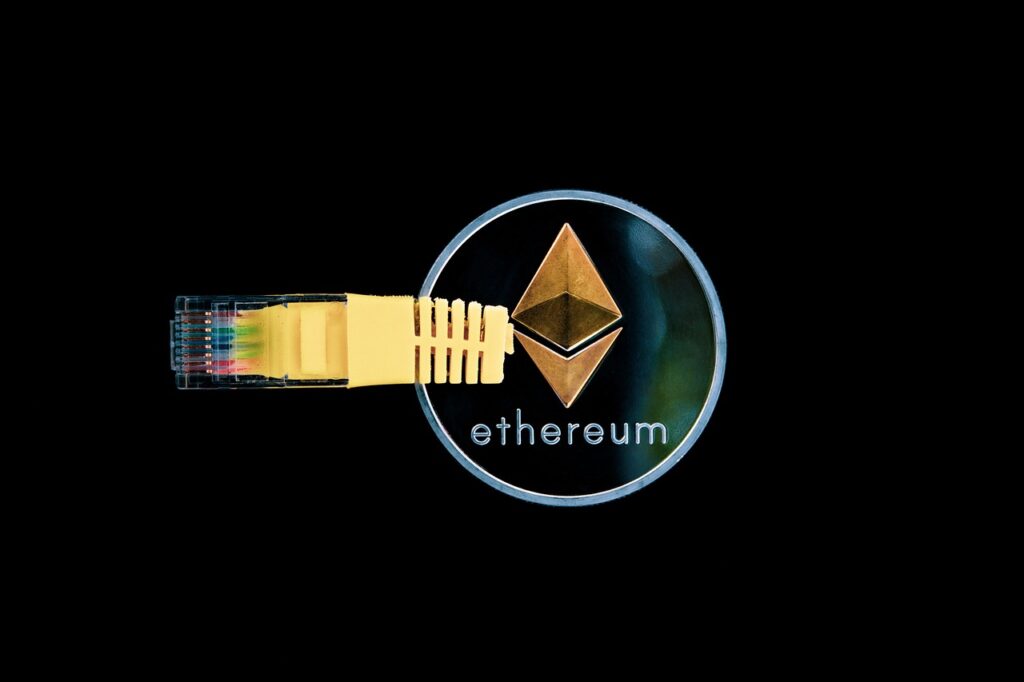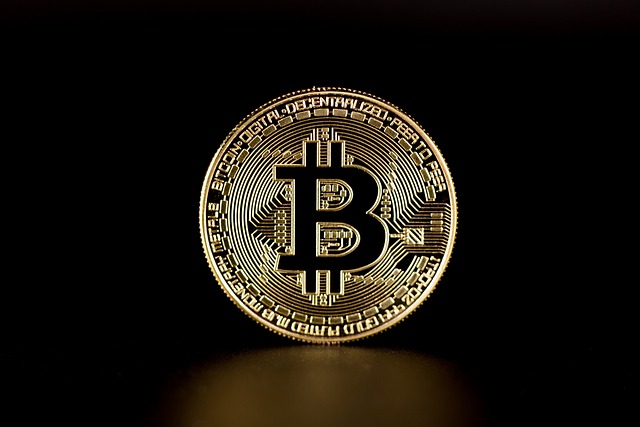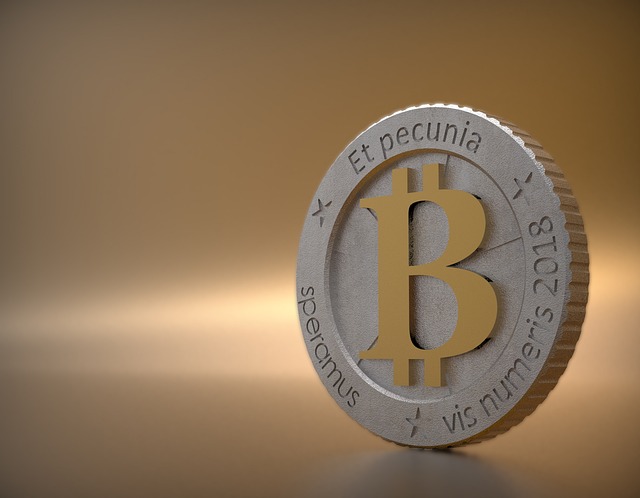Decentralized Finance System: The Engine of Financial Evolution
Decentralized Finance System: The Engine of Financial Evolution

The Rise of Decentralized Finance
Decentralized finance, commonly known as DeFi, has been making waves in the financial industry in recent years. This innovative concept is revolutionizing the way financial systems operate by leveraging blockchain technology. Unlike traditional finance, which relies heavily on intermediaries such as banks and other centralized institutions, DeFi takes a more democratic approach. It aims to create an open and accessible financial ecosystem that empowers individuals to have greater control over their assets and financial activities.
One of the key drivers behind the rise of decentralized finance is the increasing adoption of blockchain technology. This groundbreaking technology provides a secure and transparent platform for executing financial transactions without the need for intermediaries. By leveraging smart contracts, DeFi applications can automate and streamline complex financial processes, such as lending, borrowing, and trading. Moreover, the programmability of smart contracts opens up a world of possibilities for creating innovative financial products and services. As a result, individuals are increasingly turning to DeFi platforms to access a wide range of financial services in a decentralized and permissionless manner.
The Concept of Decentralization in Finance
When we talk about the concept of decentralization in finance, we are essentially referring to the idea of removing traditional intermediaries and central authorities from financial transactions and activities. In a decentralized financial system, power and control are distributed among the participants, rather than being concentrated in the hands of a few institutions. This shift is made possible by advancements in technology, particularly the emergence of blockchain technology.
The main motivation behind decentralization in finance is to create a more open, inclusive, and transparent financial ecosystem. By eliminating the need for intermediaries such as banks or payment processors, individuals can directly interact with each other on a peer-to-peer basis. This not only reduces costs and transaction fees but also enables greater financial freedom and access for individuals who may have been excluded from traditional financial systems. Additionally, the use of blockchain technology ensures a secure and immutable ledger of transactions, instilling trust and confidence in the system.
Breaking Down Traditional Financial Systems
Traditional financial systems, as we have known them for decades, are built on centralized structures.


Moreover, traditional financial systems often rely on a centralized authority to govern and regulate financial activities. This concentration of power and control has led to concerns about transparency, accountability, and potential exploitation. Decentralized finance (DeFi), on the other hand, aims to break down these traditional systems by leveraging blockchain technology and smart contracts to create a more inclusive, transparent, and efficient financial landscape. By removing the need for intermediaries, DeFi enables peer-to-peer transactions, allowing individuals to directly interact with each other while maintaining control over their own funds.
How Blockchain Technology Powers Decentralized Finance
Blockchain technology plays a central role in powering decentralized finance (DeFi) systems. By utilizing a decentralized, transparent, and immutable ledger, blockchain enables trust and removes the need for intermediaries in financial transactions. This technology allows for the creation of smart contracts, which are self-executing agreements that automatically execute when certain conditions are met. These smart contracts enable more efficient and secure transactions, as they are executed without the need for human intervention.
Furthermore, blockchain technology provides a high level of security for decentralized finance protocols. Utilizing cryptographic algorithms, blockchain ensures that the data stored within the system is tamper-proof and resistant to unauthorized modifications.

The Advantages of Decentralized Finance over Traditional Systems
Decentralized finance, also known as DeFi, has gained significant traction in recent years, revolutionizing the traditional financial systems. One of the key advantages of DeFi lies in its ability to provide financial services without the need for intermediaries like banks or brokerage firms. This decentralized nature brings forth several benefits, such as increased accessibility and inclusivity. Individuals all around the globe can now participate in financial activities, even if they lack access to traditional banking services. With just an internet connection, anyone can engage in activities like lending, borrowing, and investing, empowering individuals who were previously excluded from traditional financial systems.
Another advantage of DeFi is the high level of security it offers compared to traditional systems. Blockchain technology, the driving force behind decentralized finance, ensures that transactions are recorded on a transparent and immutable public ledger. As a result, the risk of fraud and manipulation is significantly reduced. Individuals can have greater confidence in the integrity of their financial transactions and investments, knowing that everything is verifiable and tamper-proof. This enhanced security not only benefits individual participants but also helps to build trust in the overall financial system, attracting more users and investors to the DeFi space.
Decentralized finance has undoubtedly disrupted the traditional financial landscape by providing greater accessibility and inclusivity, as well as enhanced security. As more individuals and institutions recognize the advantages of DeFi, it is expected to continue growing and evolving, potentially transforming the entire financial industry. The future of decentralized finance is promising, and its impact on the financial world is still unfolding. With the potential to empower individuals and reshape the way we engage with financial services, DeFi represents a paradigm shift in how we think about money and finance.
Exploring the Various Applications of Decentralized Finance
Decentralized finance (DeFi) has paved the way for numerous innovative applications, disrupting traditional financial systems. One of the most prominent applications is decentralized lending and borrowing. Through smart contracts and blockchain technology, individuals can now lend and borrow funds without the need for intermediaries like banks. This not only reduces costs but also provides greater accessibility to financial services, especially for the unbanked population.
Another application of DeFi is decentralized exchanges (DEXs). These platforms enable users to trade digital assets without the need for a central authority. Unlike traditional exchanges, which often suffer from high fees and limited trading hours, DEXs operate 24/7 and eliminate the reliance on intermediaries. Moreover, they enhance user privacy as transactions occur directly between individuals, removing the need for KYC (know your customer) procedures. DEXs have gained significant popularity due to their transparency, security, and ability to enable instant trades.
• Decentralized lending and borrowing through smart contracts and blockchain technology
• Reduced costs and greater accessibility to financial services for the unbanked population
• Decentralized exchanges (DEXs) allowing users to trade digital assets without a central authority
• DEXs operate 24/7, eliminating high fees and limited trading hours of traditional exchanges
• Enhanced user privacy as transactions occur directly between individuals without KYC procedures
• Popularity of DEXs due to transparency, security, and ability to enable instant trades
The Role of Smart Contracts in Decentralized Finance
Smart contracts play a crucial role in the world of decentralized finance. These programmable agreements are built on blockchain technology, allowing for the automation and execution of financial transactions without the need for intermediaries. With smart contracts, all parties involved can rely on a code that is transparent, immutable, and self-executing.
One key benefit of smart contracts is their ability to eliminate the need for trust between parties. The terms and conditions of the contract are written into the code, leaving no room for interpretation or manipulation. This not only reduces the potential for fraud and disputes, but it also streamlines the entire process, making it faster, more efficient, and cost-effective. Smart contracts have the potential to revolutionize various aspects of decentralized finance, including lending, borrowing, asset management, and decentralized exchanges, by providing a secure and reliable framework for executing transactions.
Challenges and Risks in the Decentralized Finance Space
While decentralized finance (DeFi) presents many exciting opportunities, it also comes with its fair share of challenges and risks. One major challenge is the issue of scalability. As more users join the network and engage in DeFi transactions, the blockchain that powers these systems may experience congestion and slower transaction times. This can hinder the user experience and limit the potential growth of DeFi applications.
Another significant challenge is the vulnerability of smart contracts to security breaches. Smart contracts are self-executing contracts with the terms of the agreement directly written into code. While they offer efficiency and transparency, any coding errors or vulnerabilities can be exploited by malicious actors. This can lead to financial losses for users and erode trust in the overall DeFi ecosystem. Ensuring the security and reliability of smart contracts is, therefore, a crucial aspect that needs to be addressed in order to mitigate risks in the DeFi space.
Regulatory Considerations for Decentralized Finance
As the decentralized finance (DeFi) space continues to gain traction and attract more users, regulatory considerations become an increasingly important aspect to address. While the decentralized nature of DeFi provides an opportunity for financial inclusivity and innovation, it also poses certain challenges in terms of oversight and consumer protection.
One of the key challenges when it comes to regulatory considerations for DeFi is the lack of centralized authority. Unlike traditional financial systems that are regulated by government bodies and institutions, DeFi operates on blockchain technology and smart contracts, making it inherently decentralized. This decentralized nature makes it difficult for regulators to enforce compliance and mitigate risks associated with fraud, money laundering, and market manipulation. Additionally, the global nature of DeFi also presents challenges for cross-border regulatory coordination, as different countries may have varying regulatory frameworks and approaches to DeFi.
The Future of Decentralized Finance and its Impact on the Financial Industry
Decentralized finance, also known as DeFi, has gained significant traction in recent years and is poised to have a lasting impact on the financial industry. The future of decentralized finance holds immense potential to reshape traditional financial systems and revolutionize how we transact, save, and invest. With its underlying technology, blockchain, powering decentralized applications, individuals can now bypass intermediaries and engage in peer-to-peer transactions seamlessly.
One of the key impacts of decentralized finance on the financial industry is the removal of barriers to entry. Traditional financial systems often require individuals to meet strict eligibility criteria, such as credit scores or collateral, to access various financial services. However, with decentralized finance, anyone with an internet connection and a digital wallet can participate. This inclusivity is particularly beneficial for the unbanked and underbanked populations, who have historically been excluded from traditional financial services. By democratizing access to financial services, decentralized finance has the potential to improve financial inclusion on a global scale.
Moreover, decentralized finance introduces a new level of transparency and security to the financial industry. Blockchain technology, which powers decentralized finance applications, enables verifiable and tamper-proof transactions. This eliminates the need for trust in intermediaries, as the entire transaction history is recorded on a public ledger. This heightened transparency reduces the likelihood of fraud and corruption, making decentralized finance a more secure alternative to traditional financial systems.
Overall, the future of decentralized finance holds immense promise to disrupt the financial industry by providing greater accessibility, transparency, and security. As the technology continues to evolve and mature, we can expect to see a wide range of applications emerge in the coming years. However, like any emerging technology, there are challenges and risks associated with decentralized finance that need to be addressed. In the next section, we will explore some of the potential risks and regulatory considerations in the decentralized finance space.
What is decentralized finance?
Decentralized finance, also known as DeFi, refers to a system of financial products and services that operate on a decentralized network, typically powered by blockchain technology. It aims to eliminate the need for intermediaries, such as banks, and promote financial inclusion and transparency.
How does decentralized finance differ from traditional financial systems?
Traditional financial systems rely on centralized authorities, such as banks or governments, to facilitate transactions and maintain records. Decentralized finance, on the other hand, utilizes blockchain technology to create a transparent and trustless system where transactions are directly peer-to-peer, without the need for intermediaries.
What are the advantages of decentralized finance over traditional systems?
Decentralized finance offers several advantages, including lower costs, increased accessibility, faster transactions, improved privacy, and a more inclusive financial system. It allows individuals to have greater control over their finances and eliminates the need to rely on centralized institutions.
How does blockchain technology power decentralized finance?
Blockchain technology serves as the underlying infrastructure for decentralized finance. It enables the secure storage and transfer of financial assets by creating a transparent and immutable ledger that is distributed across a network of computers. This eliminates the need for intermediaries and ensures the integrity of transactions.
What are some applications of decentralized finance?
Decentralized finance can be applied to various areas, including lending and borrowing, decentralized exchanges, stablecoins, prediction markets, insurance, and more. These applications aim to provide financial services in a more efficient, transparent, and inclusive manner.
What is the role of smart contracts in decentralized finance?
Smart contracts are self-executing contracts with the terms of the agreement directly written into code. They play a crucial role in decentralized finance by automating the execution of transactions and ensuring compliance with predefined rules. Smart contracts eliminate the need for intermediaries and provide increased efficiency and security.
What are the challenges and risks in the decentralized finance space?
Decentralized finance is still relatively new and faces challenges such as scalability, interoperability, and security vulnerabilities. Additionally, there is a risk of smart contract bugs or hacks, as well as potential regulatory uncertainties. It is important for users to conduct thorough research and exercise caution when participating in decentralized finance.
Are there any regulatory considerations for decentralized finance?
Yes, as decentralized finance continues to grow, regulators are starting to pay closer attention to ensure compliance with existing financial regulations. However, due to the decentralized nature of these systems, regulatory frameworks are still evolving. It is important for participants to stay informed about any regulatory developments and seek legal advice if necessary.
What is the future of decentralized finance and its impact on the financial industry?
The future of decentralized finance looks promising, with the potential to disrupt traditional financial systems and reshape the industry. It has the power to provide financial services to the unbanked, reduce costs, increase efficiency, and promote financial inclusion. However, its full impact will depend on the resolution of challenges and the adoption of regulatory frameworks that balance innovation and consumer protection.
Todays Featured Product:
Buy, exchange and grow your crypto securely with a Ledger hardware wallet, combined with the Ledger Live app. It’s never been easier to keep your crypto safe and accessible. Buy direct from Ledger.com and get todays Special Offers Here.




